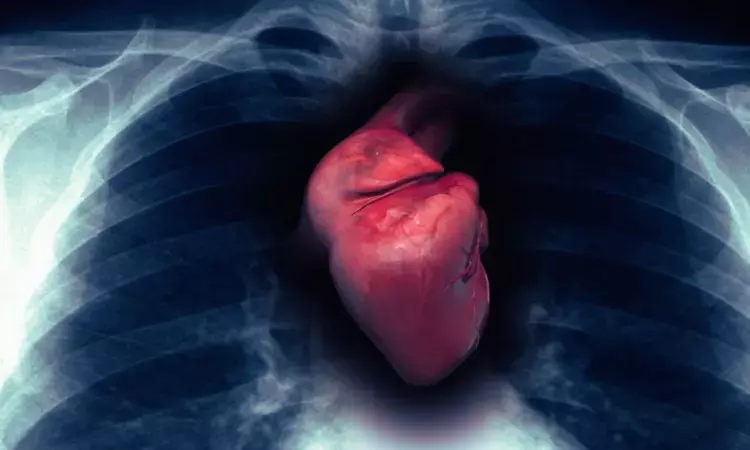- Home
- Medical news & Guidelines
- Anesthesiology
- Cardiology and CTVS
- Critical Care
- Dentistry
- Dermatology
- Diabetes and Endocrinology
- ENT
- Gastroenterology
- Medicine
- Nephrology
- Neurology
- Obstretics-Gynaecology
- Oncology
- Ophthalmology
- Orthopaedics
- Pediatrics-Neonatology
- Psychiatry
- Pulmonology
- Radiology
- Surgery
- Urology
- Laboratory Medicine
- Diet
- Nursing
- Paramedical
- Physiotherapy
- Health news
- Fact Check
- Bone Health Fact Check
- Brain Health Fact Check
- Cancer Related Fact Check
- Child Care Fact Check
- Dental and oral health fact check
- Diabetes and metabolic health fact check
- Diet and Nutrition Fact Check
- Eye and ENT Care Fact Check
- Fitness fact check
- Gut health fact check
- Heart health fact check
- Kidney health fact check
- Medical education fact check
- Men's health fact check
- Respiratory fact check
- Skin and hair care fact check
- Vaccine and Immunization fact check
- Women's health fact check
- AYUSH
- State News
- Andaman and Nicobar Islands
- Andhra Pradesh
- Arunachal Pradesh
- Assam
- Bihar
- Chandigarh
- Chattisgarh
- Dadra and Nagar Haveli
- Daman and Diu
- Delhi
- Goa
- Gujarat
- Haryana
- Himachal Pradesh
- Jammu & Kashmir
- Jharkhand
- Karnataka
- Kerala
- Ladakh
- Lakshadweep
- Madhya Pradesh
- Maharashtra
- Manipur
- Meghalaya
- Mizoram
- Nagaland
- Odisha
- Puducherry
- Punjab
- Rajasthan
- Sikkim
- Tamil Nadu
- Telangana
- Tripura
- Uttar Pradesh
- Uttrakhand
- West Bengal
- Medical Education
- Industry
Enhancing Post-Transplant Care: CCTA can track vasculopathy risk in heart transplant patients, study finds

Poland: Heart transplantation stands as a life-saving intervention for individuals with end-stage heart failure. Yet, even after a successful transplant, recipients face ongoing challenges, including the risk of cardiac allograft vasculopathy (CAV), a form of coronary artery disease unique to transplant patients. In this context, the utility of advanced imaging techniques like 64-slice coronary computed tomography angiography (CCTA) is gaining significant attention for its potential to revolutionize post-transplant care.
The study, published in Transplantation Proceedings, revealed the effectiveness of coronary CT angiography in assessing cardiac allograft vasculopathy risk in heart transplant patients. The researchers found that heart transplant patients followed with CCTA exams had no adverse events.
"CCTA offers a secure and efficient means of assessment in heart transplant recipients," the researchers wrote.
CAV remains a leading cause of morbidity and mortality in heart transplant recipients, often presenting insidiously and progressing silently. Traditional diagnostic modalities, such as coronary angiography, may have limitations in detecting early stages of CAV due to the complex anatomy of the transplanted heart and the presence of coronary artery anomalies. However, 64-slice CCTA offers a non-invasive and highly accurate alternative for evaluating coronary vasculature with exceptional spatial resolution.
Against the above background, Agnieszka Kuczaj, Medical University of Silesia, Katowice, Poland, and colleagues aimed to evaluate the safety and efficacy of CCTA in patients after heart transplantation (HTx).
For this purpose, the researchers enrolled 107 consecutive HTx recipients (26 women, mean age 50 ± 17 years); all were ≥3 years post-HTx with no or minimal evidence of CAV in a prior coronary angiography performed a minimum of 2 years before the current examination.
The inclusion criteria comprised the absence of new heart failure symptoms, an estimated glomerular filtration rate (eGFR) of ≥30, and no contraindications to iodine contrast or CT scans.
All patients underwent a 64-slice CCTA. Noninvasive follow-up examinations were conducted in cases of no or minimal changes. Significant changes in CT prompted additional coronary angiography.
The study led to the following findings:
- Of the enrolled participants, 9 exhibited minimal changes; 98 displayed no changes in coronary angiography.
- The median time since transplant was 7 years, with IQR of 4 to 11.25 years. Significant changes were excluded in 98 patients.
- Among the nine patients with suspected significant CAV, significant changes were confirmed in 8 patients, resulting in percutaneous transluminal coronary angioplasty (PTCA) performed in 6.
- One patient from this group died shortly after PTCA. There were no cardiovascular incidents within the remaining group.
- The median follow-up period was 539. The mean left ventricular ejection fraction at follow-up was 58% ± 5% compared with 58% ± 4% at baseline.
- At follow-up, the mean eGFR was 64 ± 18 mL/kg/1.73 m2 compared with the baseline value of 67.2 mL/kg/1.73 m2.
"CCTA is a safe method of evaluating cardiac allograft vasculopathy risk in heart transplant recipients," the researchers concluded.
Reference:
Kuczaj, A., Pawlak, S., Głowacki, J., Antończyk, R., Śliwka, J., Przybyłowski, P., & Hrapkowicz, T. (2024). Utility of 64-Slice Coronary Computed Tomography Angiography in Heart Transplant Recipients. Transplantation Proceedings. https://doi.org/10.1016/j.transproceed.2024.03.035
Dr Kamal Kant Kohli-MBBS, DTCD- a chest specialist with more than 30 years of practice and a flair for writing clinical articles, Dr Kamal Kant Kohli joined Medical Dialogues as a Chief Editor of Medical News. Besides writing articles, as an editor, he proofreads and verifies all the medical content published on Medical Dialogues including those coming from journals, studies,medical conferences,guidelines etc. Email: drkohli@medicaldialogues.in. Contact no. 011-43720751


